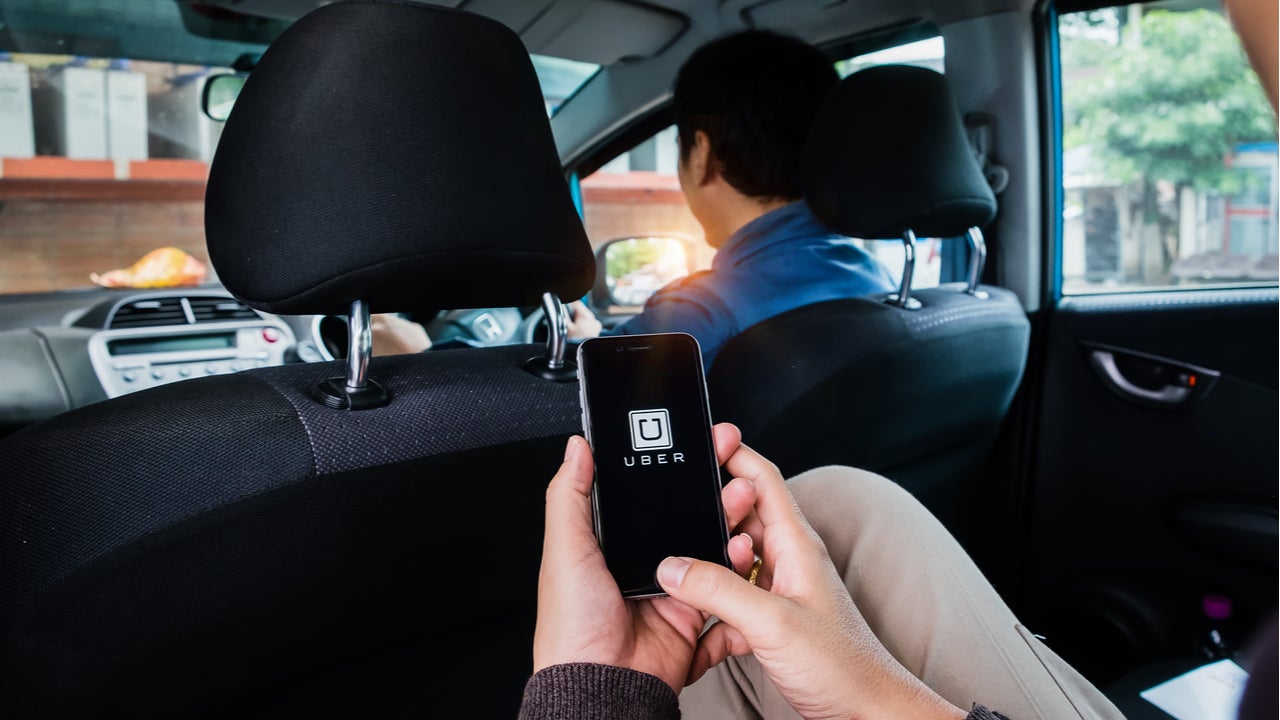
Uber has set aside $600m to cover the cost of driver employment claims in a blow to its gig economy business model after the Supreme Court ruled it must classify UK drivers as workers rather than independent contractors.
In March the ride-hailing company said its 70,000 UK drivers would be entitled to minimum wage, holiday pay and in some cases a pension scheme. It means Uber has set aside an average of $8,571 per UK driver to make up for historic shortfalls in pay.

Access deeper industry intelligence
Experience unmatched clarity with a single platform that combines unique data, AI, and human expertise.
The settlement wiped 73% off Uber’s Europe, Middle East and Africa revenue for the quarter ended 31 March, suggesting it can ill-afford to make similar reclassifications in the other regions in which it operates.
However, the true hit to Uber’s business model in the UK will surpass $600m because that fund does not cover the increased labour costs it will incur in future from classifying all drivers as workers.
It is the first time Uber has disclosed the cost of its Supreme Court defeat, which came after it appealed previous court victories by former Uber drivers James Farrar and Yaseen Aslam three times.
The Supreme Court said that because Uber sets the fare, contract terms, as well as monitors drivers and penalises them for rejecting too many rides, the drivers were in a “position of subordination and dependency to Uber.”

US Tariffs are shifting - will you react or anticipate?
Don’t let policy changes catch you off guard. Stay proactive with real-time data and expert analysis.
By GlobalDataUber’s employment settlement fund gives an indication of the costs that other gig economy companies could face in future – should successful legal action be brought against them.
It comes amid growing backlash among investors against tech companies relying on gig economy workers, with Aviva Investors and Aberdeen Standard citing it as their reason for shunning Deliveroo’s IPO.
The employment settlement costs were detailed in Uber’s quarterly earnings, which helped swing Uber’s revenue from an 8% year-on-year increase to an 11% decrease.
Further highlighting the hit to Uber’s business model, the UK settlement costs wiped out a 41% share of its global mobility revenue for the quarter.
While Uber has successfully fended off a bid to classify its drivers as workers in California, it faces similar legal disputes across Europe.
As a loss-making company whose business was devastated by the pandemic, Uber is keen to avoid a repeat of the UK gig economy decision. It previously threatened to pull out of California if the Proposition 22 vote did not go its way and in February urged European lawmakers to continue recognising drivers as independent contractors.
Despite the pandemic fallout, the San Francisco headquartered company narrowed its losses to $108m from $2.93bn this time last year.
The 12-year-old firm is starting to benefit from the easing of some lockdown restrictions, with gross bookings up 24% year on year to $19.5bn.
Its main source of revenue and growth stemmed from its food delivery segment, which brought in $1.7bn in sales – up 230% year on year as it continued to benefit from the closure of restaurants.
“Uber is starting to fire on all cylinders, as more consumers are riding with us again while continuing to use our expanding delivery offerings,” said Uber CEO Dara Khosrowshahi in prepared remarks.
“We will continue to innovate and find new ways to deepen engagement with our customers, as the only global platform that helps you go wherever you need and get whatever you want.”







